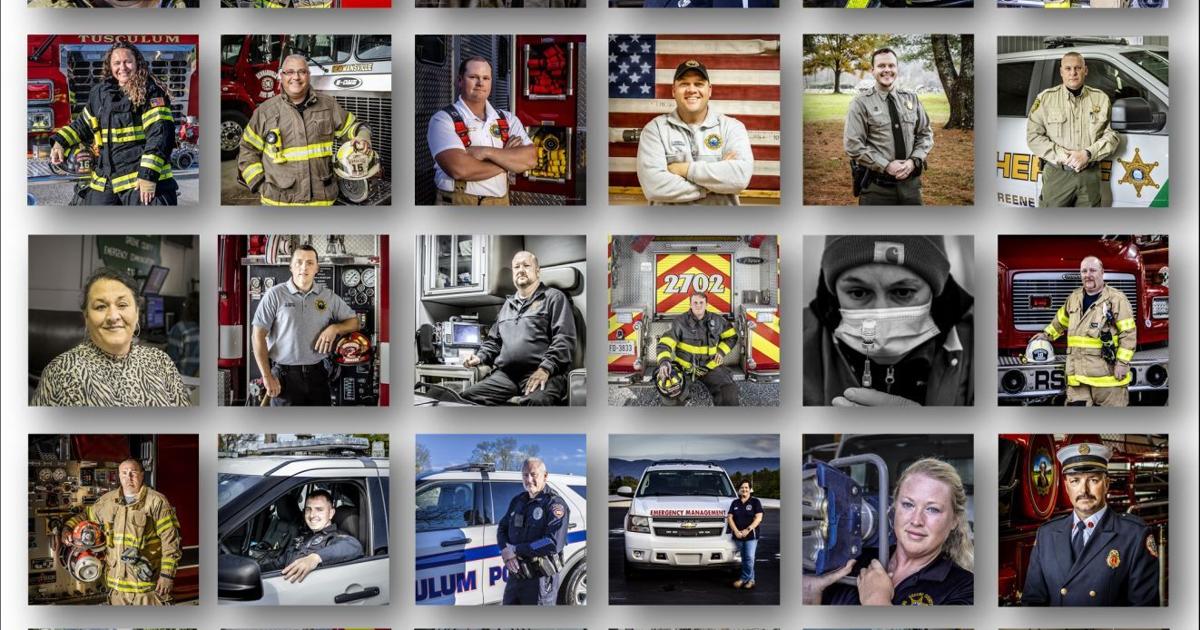
How do you define a hero?
In an extreme sport and megastar era, many professional athletes, musicians, and movie stars are called heroes for their athletic abilities or artistic achievements.
Heroes can be a teacher or a coach; an individual who went above and beyond, providing a positive lifelong impact.
Others might consider the local police officer or firefighter that zip by with flashing lights, racing toward the danger — not away from it.
And then there are the soldiers, sailors, and airmen. Many of us grew up wondering what acts of courage the men and women in stern looking basic training graduation photos hung on a wall or placed atop a fireplace mantel performed.
I asked many of our local first responders for their definition of a hero during our interviews. Their responses varied based on their perspective, but all had a common theme of service and selflessness.
“Someone who went beyond the expectations of their position with extraordinary or unexpected action, that at that given moment, made the difference between life and death,” was the phrase Wesley Miller created. Miller is a paramedic with Greene Co. E.M.S. and a responder recently profiled in the Hometown Heroes column.
The Oxford Languages defines a hero as someone admired or idealized for courage, outstanding achievements, or noble qualities.
The point is that we all have our definitions of a hero.
The Hometown Heroes column grew out of an extension of a personal project, Portrait of a Responder, which focuses on first responders — more specifically, the flashy lights, jaws of life, fight the fire, stop the perpetrator kind of responders.
As it turns out, this may be a little too narrowly focused for the number and types of heroes we can recognize in our community.
If the past 18 months taught us anything, the front lines for emergency responders are not all flashing lights. They are the individuals and groups that come together to treat our pandemics and maintain our infrastructure during austere conditions. And there are those special individuals who provide spiritual support for our responders.
With those lessons learned, I reviewed the potential definitions of heroes we could use for the column.
Many of the first published profiles included emergency response providers such as fire, law enforcement and emergency management. I also had a few 911 dispatchers, emergency medical services providers, volunteer personnel and agencies.
As we move forward into 2022, the column will expand to include public safety personnel, public health, public works, military, and other skilled support personnel that provide immediate support services during prevention, response and recovery operations.
As for location, hometown seems to have several meanings as well. I will start using an outline of a responder who currently lives in Greeneville and Greene County or from Greeneville and Greene County while possibly working elsewhere in a responder capacity. I will also profile agencies serving within our community.
Thank you to the 38 responders and two agencies profiled thus far for sharing their stories with me and, in turn, the column’s readers. Each profile is different in its own way, sharing individual accomplishments and challenges.
While each responder had a different story, all made the same point stating they did not feel they were heroes. No matter how long they had been on the job, how many calls they had run, lives they might have saved, or fires put out, no one wanted to be called a hero.
At this point, Oxford Languages might consider adding “humble” to the definition of a hero.
